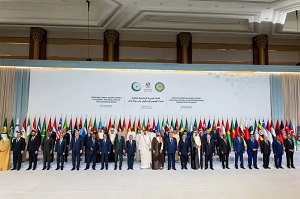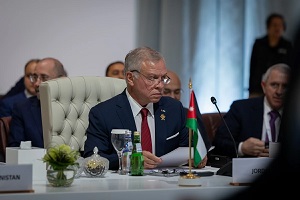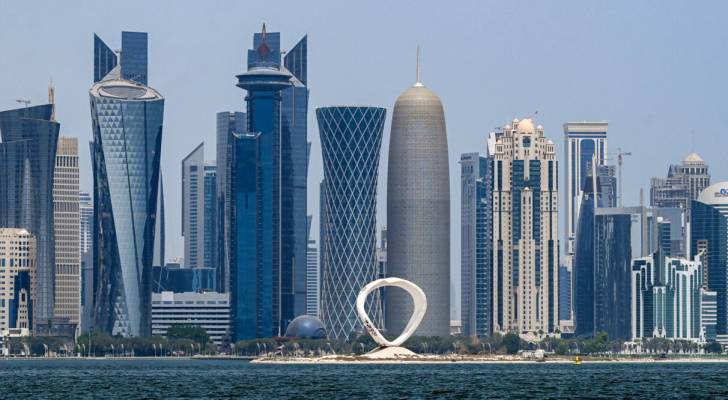Digital economy ministry, UNDP launch ‘Reimagining the Jordan Valley’ Forum to empower youth, boost creative economy
The Jordan Times
DEAD SEA — The Ministry of Digital Economy and Entrepreneurship, in partnership with the United Nations Development Programme (UNDP), the Japanese embassy and I-Dare for Sustainable Development, on Tuesday launched the "Reimagining the Jordan Valley: Creative Pathways Forum" at the King Hussein Bin Talal Convention Centre in the Dead Sea.
The forum brought together over 150 youth, practitioners, policymakers, and ecosystem builders to explore ways to empower young people, strengthen local economies, and unlock the creative and cultural potential of the Jordan Valley.
UNDP Deputy Resident Representative in Jordan Majida Assaf, commended the Ministry, the Government of Japan, and other partners for supporting the forum. She highlighted the Valley’s strategic importance, emphasising its unique agricultural, tourism, and cultural assets, while also noting ongoing challenges such as high poverty and unemployment, weak infrastructure, and complex administrative responsibilities.
“Despite these challenges, the Jordan Valley holds immense opportunities for innovation and sustainable development,” Assaf said. She outlined UNDP’s work in the Valley, including projects to improve environmental management, food security, and create sustainable employment for youth and women. UNDP, in partnership with the UN Capital Investment Fund (UNCDF) and the government to advance a portfolio worth approximately $18 million over the next five years to enhance community resilience to climate change and natural disasters, she said.
The forum serves as a platform for creativity and sustainable development, focusing on four thematic areas: agrotourism, culinary creativity, local culture and arts, and digital resilience Assaf said noting that that the initiative aims to provide new economic opportunities for youth and women, align with Jordan’s Economic Modernisation Vision, and expand participation in the creative economy.
She told the Jordan Times that the Jordan Valley was selected as the first phase of this initiative due to its rich cultural, economic, agricultural, and environmental resources. “Our focus is on building youth capacities and integrating digital technologies so that local products can reach both domestic and international markets, linking heritage and culture with modern technology,” Assaf said.
Japan’s Ambassador to Jordan Asari Hideki highlighted the longstanding partnership between Japan and UNDP in empowering youth and women across the country. He noted Japan’s support for multiple initiatives, including the recently completed Safe Pathway for At-Risk Youth and Women project and the newly launched Mitigating Juvenile Crime project in Aqaba and Wadi Ramm.
"Since 2015, these projects have engaged over 8,500 young people, strengthening their digital and socioeconomic resilience while fostering community cohesion," he said.
The ambassador emphasised the integration of creative and cultural industries in sectors such as agrotourism, wellness, and sustainable design, promoting youth-led initiatives and meaningful economic opportunities. He highlighted the alignment of these projects with Jordan’s National Development Strategy, Economic Modernization Vision, and Japan’s development cooperation policy.
Secretary-General of the Ministry Samira Zoub stressed that creativity is not a luxury but a strategic choice for inclusive development and social justice. She said the forum aims to open new avenues for youth and women, linking the Valley’s unique identity with economic empowerment and local creative ecosystems.
Zoub highlighted inspiring examples, including the “Gold of the Valley” project, led by women in Souima village through the Dar Al Karam Charity Association, which transforms banana paper into economically and socially valuable products. “We aim to reimagine the Jordan Valley not as a marginalized area but as a platform for creativity, solutions, and a living model demonstrating the potential of our youth and culture,” she said.
The forum also featured four parallel workshops focusing on high-potential sectors: agritourism, food systems, identity-based industries, digital resilience, and green entrepreneurship. Local experts and leaders facilitated these workshops, providing practical insights and frameworks for public-private partnerships.
Latest News
-
 Arab-Islamic Summit issues final statement, condemns Israeli attack on Qatar, calls for accountability
Arab-Islamic Summit issues final statement, condemns Israeli attack on Qatar, calls for accountability
-
 King delivers Jordan's address at Emergency Arab-Islamic Summit in Doha
King delivers Jordan's address at Emergency Arab-Islamic Summit in Doha
-
 Leaders unite against ‘Israeli’ strike on Qatar at emergency Arab-Islamic Summit
Leaders unite against ‘Israeli’ strike on Qatar at emergency Arab-Islamic Summit
-
 Gaza’s death toll rises to 64,905: Health Ministry
Gaza’s death toll rises to 64,905: Health Ministry
-
 Rubio promises Netanyahu “unwavering support” to ‘Israel’ in Gaza goals
Rubio promises Netanyahu “unwavering support” to ‘Israel’ in Gaza goals